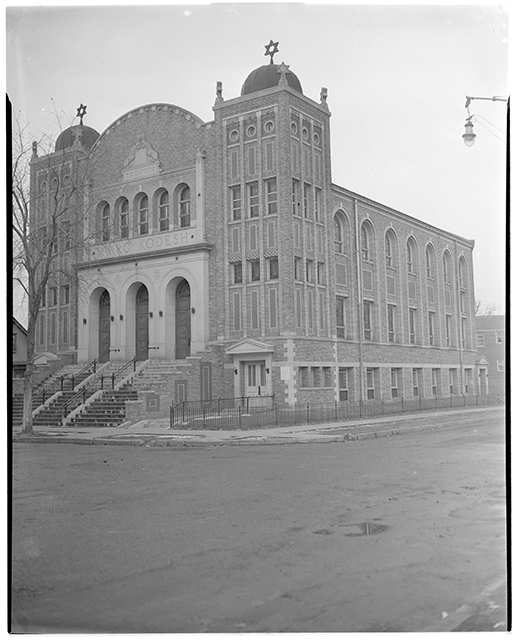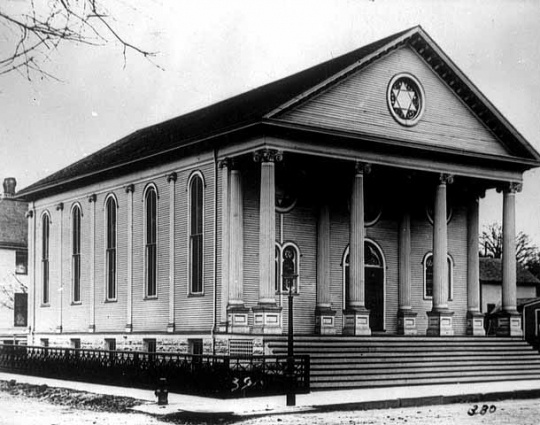Mikro Kodesh Synagogue, Minneapolis
The second Mikro Kodesh Synagogue, 1004 Oliver Avenue North, Minneapolis, 1937. Photographer: Minneapolis Star Journal Tribune.
Bibliography
Berman, Hyman, and Linda Mack Schloff. Jews in Minnesota. St. Paul: Minnesota Historical Society Press, 2002.
City of Minneapolis Heritage Preservation Commission Registration Form, 97-4073, Mikro Kodesh Synagogue, Historic Preservation Office, Minnesota Historical Society.
North Side Memories, full issue of Upper Midwest Jewish History 2 (Fall 2000).
Peterson, Garneth O. "Jewish Settlement in Minneapolis, 1860s–1972," Historic Context for Minneapolis Preservation Plan, 1997, State Historic Preservation Office, Minnesota Historical Society.
Chronology
1890
1926
1949
1969
Bibliography
Berman, Hyman, and Linda Mack Schloff. Jews in Minnesota. St. Paul: Minnesota Historical Society Press, 2002.
City of Minneapolis Heritage Preservation Commission Registration Form, 97-4073, Mikro Kodesh Synagogue, Historic Preservation Office, Minnesota Historical Society.
North Side Memories, full issue of Upper Midwest Jewish History 2 (Fall 2000).
Peterson, Garneth O. "Jewish Settlement in Minneapolis, 1860s–1972," Historic Context for Minneapolis Preservation Plan, 1997, State Historic Preservation Office, Minnesota Historical Society.





